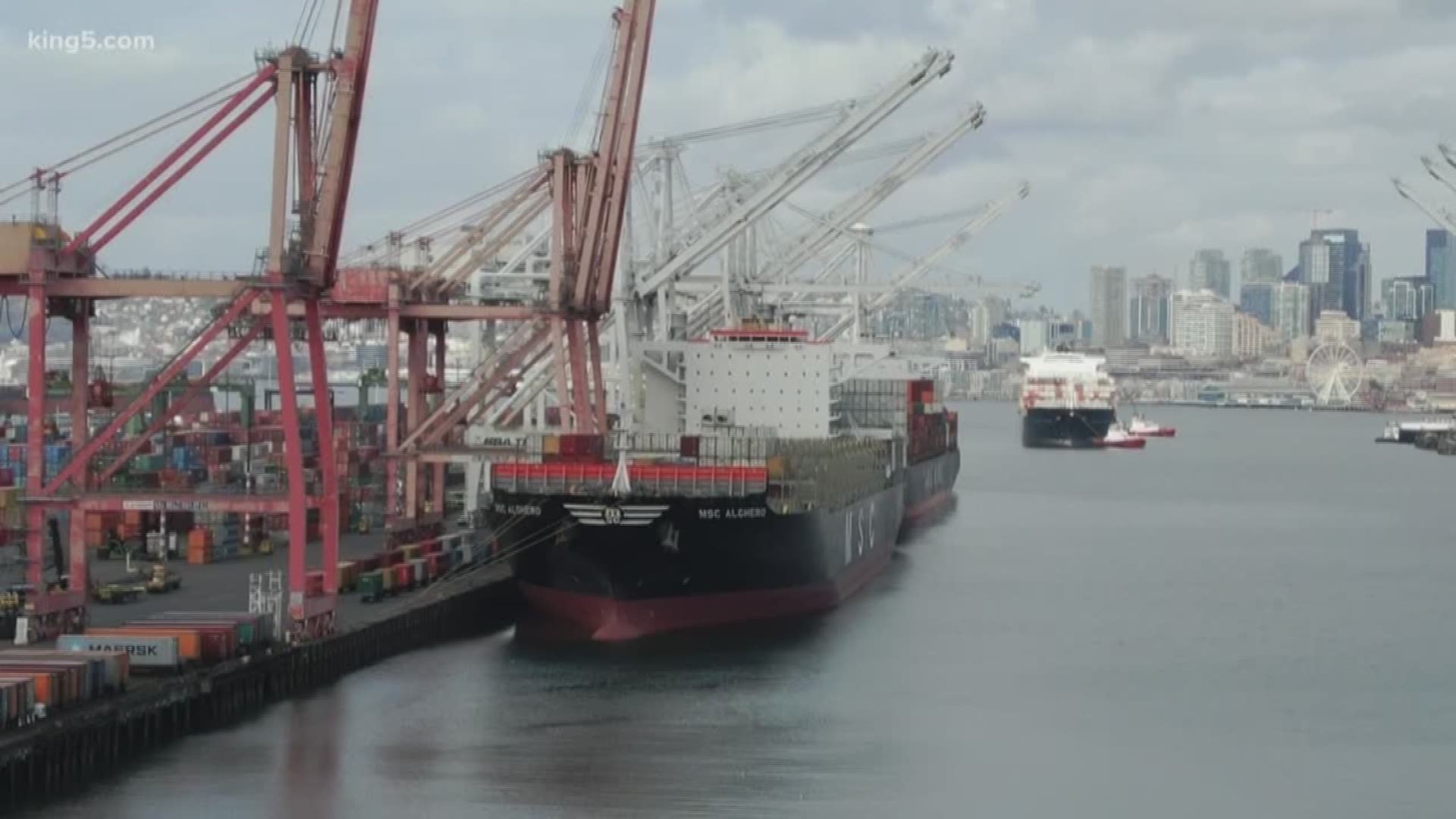Washington state is already seeing economic impacts from COVID-19, previously known as coronavirus, which has seriously impacted China. As Washington has long been considered the most trade dependent state on a per capita basis, that is not good news.
Take the amount of cargo coming from China. Zack Thomas, Director of the Operations Service Center for the Northwest Seaport Alliance, said terminal operators tell him some ships are coming in with as little as half their normal volume of containers.
The Seaport Alliance operates both the ports of Tacoma and Seattle. Thomas said the evidence is largely anecdotal, but several ships have come in 25 to 50 percent lighter than normal, for what is already a slower time of the year.
"It's just hitting us," Thomas said.
"It's usually about 25 to 30 days to ship from eastern China to the west coast," said Spencer Cohen, PhD, the Senior Economist for Community Attributes in Seattle. He's an expert on Chinese trade and how it functions as part of the the supply chain to many U.S. businesses.
"Roughly about 90 percent of the Fortune 500 companies with operations in Shanghai have reopened," Cohen said. "The problem is there are labor shortages." The labor shortages are due to weeks-long quarantine periods, especially for employees trying to get back to work from more affected parts of the country, such as Wuhan.
The impacts are being watched closely by the Washington Department of Commerce and Employment Security under state government. Both agencies said there are plenty of observations, just like the ports, but it's too early to get any firm measurements of the impacts. For example, February numbers from the Seaport Alliance won't be ready until mid March.
At Sea-Tac Airport, the impacts are more immediate, with 60 direct flights cancelled already between the Northwest's largest airport and China.
U.S. stocks fell sharply in early trading Monday, following a broad sell-off in overseas markets, as a surge in new coronavirus cases and a worrisome spread outside of the epicenter in China sent investors running for safety.
The Dow Jones Industrial Average plunged down more than 1,000 points, to around 27,962.78 and gave up all of its gains for 2020. The S&P 500 index skidded 3.35% and gave up most of its gains for 2020. The Nasdaq fell 3.71% by the end of the trading day Monday.
Boeing also uses lots of parts and sub assemblies from China, and a spokesman said the company hasn't seen a shortage yet, but is making contingency plans to find other sources or build those parts in its own factories.
Spencer Cohen, with Community Attributes, said this is about the global economy, and that it's not as simple as parts and finished products simply originating in China. He said Chinese factories are largely assembly points these days, depending on components from other countries including South Korea, which is seeing the impacts of the virus within its own borders.
Cohen also said what blunted the impact was the fact that the outbreak hit as part of the Lunar New Year, where most Chinese take the year off. He and others say Chinese factories usually stockpile finished goods before the holiday, and that has kept the pipeline fuller longer than it usually would.
The Associated Press contributed to this report

